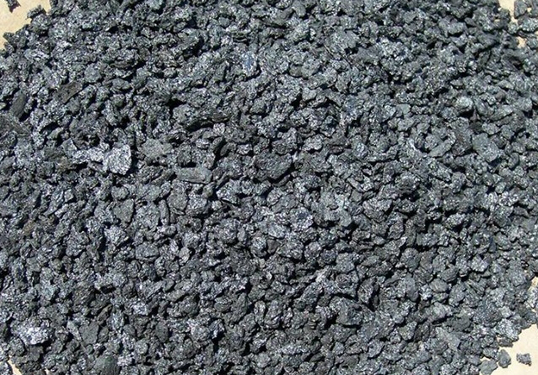
Calcined petroleum coke (CPC) is a vital raw material used in the production of aluminum, specifically in the manufacturing of carbon anodes for the aluminum smelting process. Derived from raw "green" petroleum coke, CPC undergoes a calcination process to remove impurities and improve its properties. This article will explore the role of calcined petroleum coke as a raw material, its production process, and its significance in the aluminum industry.
The production of calcined petroleum coke begins with the sourcing of green petroleum coke, a byproduct of the oil refining process. Green coke contains a high percentage of impurities, such as sulfur, metals, and volatile organic compounds. To transform green coke into a suitable raw material for aluminum production, it must undergo a calcination process. This involves heating the green coke in a rotary kiln at temperatures of 1200-1350°C, which removes moisture, volatile matter, and impurities, resulting in a high-quality calcined petroleum coke.
Calcined petroleum coke possesses several key properties that make it an ideal raw material for the production of carbon anodes in the aluminum industry. These properties include low sulfur content, low metals content, low electrical resistivity, and high real density. The real density of calcined coke typically ranges from 1.967 to 1.985 g/cm3 . These properties contribute to the overall performance of the carbon anodes and the efficiency of the aluminum smelting process.

Calcined petroleum coke is a crucial component in the production of carbon anodes, which serve as the key conductive material in the electrolytic reduction of alumina to aluminum. The properties of the calcined coke, such as its real density and electrical resistivity, directly influence the porosity, electrical conductivity, and overall performance of the anodes. As a result, the quality of the calcined petroleum coke has a significant impact on the efficiency and energy consumption of the aluminum smelting process.
Maintaining the quality and consistency of calcined petroleum coke is essential for optimal anode performance in aluminum production. Producers of calcined coke must adhere to strict quality control measures and meet industry specifications to ensure their product is suitable for use in the aluminum industry. These specifications typically include limits on sulfur content, metals content, and real density, among other properties. Regular testing and analysis of calcined coke samples help ensure that the material meets the required standards for use in aluminum production.
In summary, calcined petroleum coke is a critical raw material in the production of aluminum, playing a vital role in the manufacturing of carbon anodes for the aluminum smelting process. The production of high-quality calcined coke involves the careful sourcing of green coke and the precise control of the calcination process to remove impurities and improve its properties. As the demand for aluminum continues to grow, the importance of understanding and controlling the properties of calcined petroleum coke will only increase, ensuring the efficiency and sustainability of the aluminum industry.

Write a Message